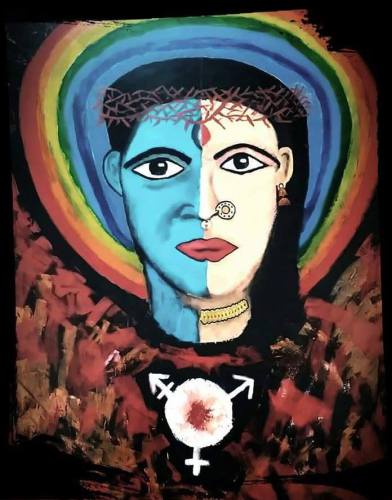
The World Health Organization has just announced the completion of the ICD-11 and released the official online version. The announcement does not mark the end of the ICD-11 process, but the beginning of a new phase focused on implementation and assessment at the country level. The new ICD version will be presented for final approval at the World Health Assembly in May 2019.
As anticipated, all trans-related categories have been deleted from the ICD Chapter on Mental and Behavioral Disorders. At the same time, new trans-related categories have been introduced: Gender Incongruence of Adolescence and Adulthood and Gender Incongruence of Childhood. These categories have been included in a new ICD location, Chapter 17 on Conditions Related to Sexual Health. Therefore, WHO rules that being a trans or gender diverse person does not mean to suffer a mental disorder. Today, a shameful history of pathologization, institutionalization, “conversion” and sterilization begins to come to a close.
The work to depathologize trans and gender diverse lives is far from complete:
- Committed and organized advocacy will be more needed than ever to ensure effective implementation at the country level, to remove pathologizing regulations while ensuring full access to legal gender recognition and to gender-affirming healthcare.
- Gender Incongruence must be reviewed and replaced as soon as possible with a category that is both able to retain its utility while removing normative or othering content.
- Gender Incongruence of Childhood must be removed from ICD-11, through national, regional and international mobilization in favor of depathologizing gender diversity in childhood entirely and for good.
- Trans and gender diverse depathologization in ICD-11 must be accompanied by a bold reaffirmation of our ultimate goal: full depathologization grounded in human rights and, particularly, on universal access to healthcare.
- Many people around the world have severely suffered the impact of pathologization. As any other victim of human rights violations, they have the right to truth, to rehabilitation and to reparation.
GATE, AKAHATA, TGEU, APTN, ILGA, Post-Soviet Trans* Coalition, Iranti.org, STP International Campaign Stop Trans Pathologization
Additional note from GATE on trans depathologization, mental health and stigma
The unfolding news of the World Health Organization removing trans-related categories from the chapter on mental health at the International Classification of Diseases, while a welcome step forward in depathologization of trans identities, makes necessary for us to express our disagreement and discomfort with a rationale made explicit by WHO.
According to the video explaining the introduction of “gender incongruence” in ICD-11 Chapter 17 on Conditions Related to Sexual Health, and also in the poster shared by WHO on its website, removing trans and gender diverse people from the realm of mental health will contribute to “reduce stigma” on the basis of mental disorder.
This affirmation is very problematic for three main reasons:
- contributes to naturalize stigma associated with mental health issues,
- it ignores the reality of trans and gender diverse people with mental disorders, and;
- it erases the historical use of diagnoses to differentiate between “normal”, i.e non-pathologize, and “pathologized” gender identities and expressions.
Identifying with a gender identity that differs from the sex assigned at birth and/or expressing one’s gender in a way that contradicts social expectations and norms is not a mental disorder; however, many trans and gender diverse people suffer from different mental disorders, including those caused by systematic transphobic violence within structural cissexist societies. Furthermore, trans people are routinely denied access to gender legal recognition and/or gender-affirming healthcare on the basis of their mental capacity. Therefore, mental health issues are our issues too, and removing stigma associated with all forms of mental illness is a top priority for our movement.
We deeply regret WHO reverting to such damaging language, which contributes to stigmatization of mental health issues instead of leading the way in dismantling this stigma. Depathologizing trans and gender diverse issues is a matter of human rights, of justice and of subversion of the gender hierarchies coded in classification systems. We strongly recommend, to allies and journalists covering this historical moment, to frame it without making our communities unwilling accomplices further stigmatization and discrimination towards people with mental health issues.
____________
To review the ICD-11 process and analyze its outcomes, to plan for next steps and articulate global strategies, partner organizations in the international ICD-11 initiative will be hosting a series of webinars, stay tuned!
* Artist Immanuel Paul Vivekanandh Karunakaran painted the transgender Indian vision of Christ during the Council of World Mission’s Global Painting Retreat in Tainan, Taiwan in 2016. Immanuel Karunakaran is an ordained minister in the Tamil Evangelical Lutheran Church, Tamilnadu, India, and has served as the Communications Secretary and Coordinator of the Dalit and Adivasi Concerns Desk of the United Evangelical Lutheran Churches in India. With degrees in theology from Gurukul Lutheran Theological College and Research Institute, Chennai, India; and McCormick Theological Seminary, Chicago, IL, Immanuel is currently a Ph.D. student at the Lutheran School of Theology at Chicago in the field of Ethics, Church and Society. An Activist Scholar and Pastor, local to Chicago, and married to Cynthiya Esther Varghese, Immanuel is blessed with two daughters, Sheryl & Meryl.
